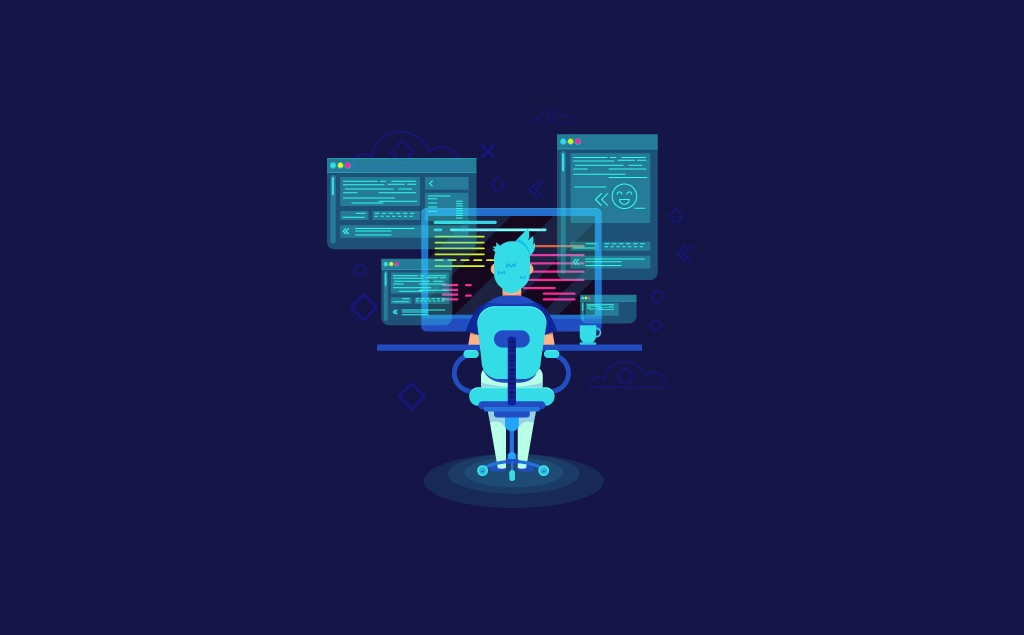There is almost no limit to what you can do to improve as a programmer. Here are some basic tips, appropriate if you are taking a software development course at university, but want to progress beyond learning the content of the course.
Program! The best way to learn to program is to actually program. Reading a book or listening to a lecture can make it seem like you have learnt and understood the concepts, but it is not until you actually start writing your own programs that you really learn. This is why (in my opinion) the best programming courses have lots of programming assignments – that’s when you are forced to put the theory into practice.
But you don’t have to stop at just doing the assignments. Solve some other problems with programs as well. If you don’t know what to solve, you can look for good problems at Programming Praxis, Ruby Quiz (the problems don’t all have to be solved in Ruby), or Project Euler (quite mathematical).
Learn a scripting language. Being able to write small scripts to automate tasks on the command line or to filter out information from a log file containing 100,000 lines is quite useful. Make sure to learn how to use regular expressions, and a language like Ruby, Python or Perl. All those languages are also used for “serious” applications, but even just using them for quick shell scripts is worthwhile.
Learn an IDE and a text editor well. For Java development it’s really worthwhile to learn to use an Integrated Development Environment (IDE), such as IntelliJ IDEA or Eclipse, really well (as I have written about before). In addition, it is always useful to know a good text editor, for example Emacs or Vim. In both cases (IDE and editor), learn as many keyboard shortcuts as you can. The goal is to be able to go from thought to program as effectively as possible.
Books. The number one book that every programmer should read is Code Complete by Steve McConnell. It’s always on top of every list of the best programming books, and for good reason (I’ve reviewed it on Amazon). It has a lot to say about how to write code (in a language-neutral way). The next book to read is The Pragmatic Programmerby Andrew Hunt and David Thomas. It contains a lot of tips on how to develop software efficiently.
Hacker News and Proggit. There are always interesting articles related to programming at both Hacker News and reddit/r/programming. Just remember to not spend too much time there – program instead. But for inspiration these sites are great.
FUN FACTS
I also added a few fun facts about how we develop software at Symsoft. All of these are not necessarily true everywhere, but I wanted to add in a few bits of trivia to give a better sense of what it can be like to work.
HashMap and ArrayList. The two Java data structures we use the most in our code.
English. We’re in Sweden, but everything is in English – the code, documentation, bug reports etc. No big surprise, I just wanted to make sure everybody knows.
People interactions. Even if your job description is coding, there is quite a bit of interaction with other people. Mostly discussing designs and bugs with colleagues, but also contact with product management and sales, and with customers. There is no such thing as a solitary coder.
Time for bug-fixing. We schedule around 30% of the developers’ time for bug-fixing. This includes the time for investigating reported problems, fixing the bugs and testing the solution. It is worth noting that many reported problems aren’t actual bugs. Sometimes the system is not configured properly, sometimes the problem is in a surrounding system, and sometimes the bug report is actually a request for a new feature.
No UML. We don’t use UML, but there are lots of whiteboards around. We use them all the time when discussing a solution to a problem, and when describing how the system works.
The talk took about 45 minutes to deliver. It was interesting to prepare and fun to give. What is your opinion and experience on what it is like to work as a professional software developer? Let me know in the comments.



Comments are closed